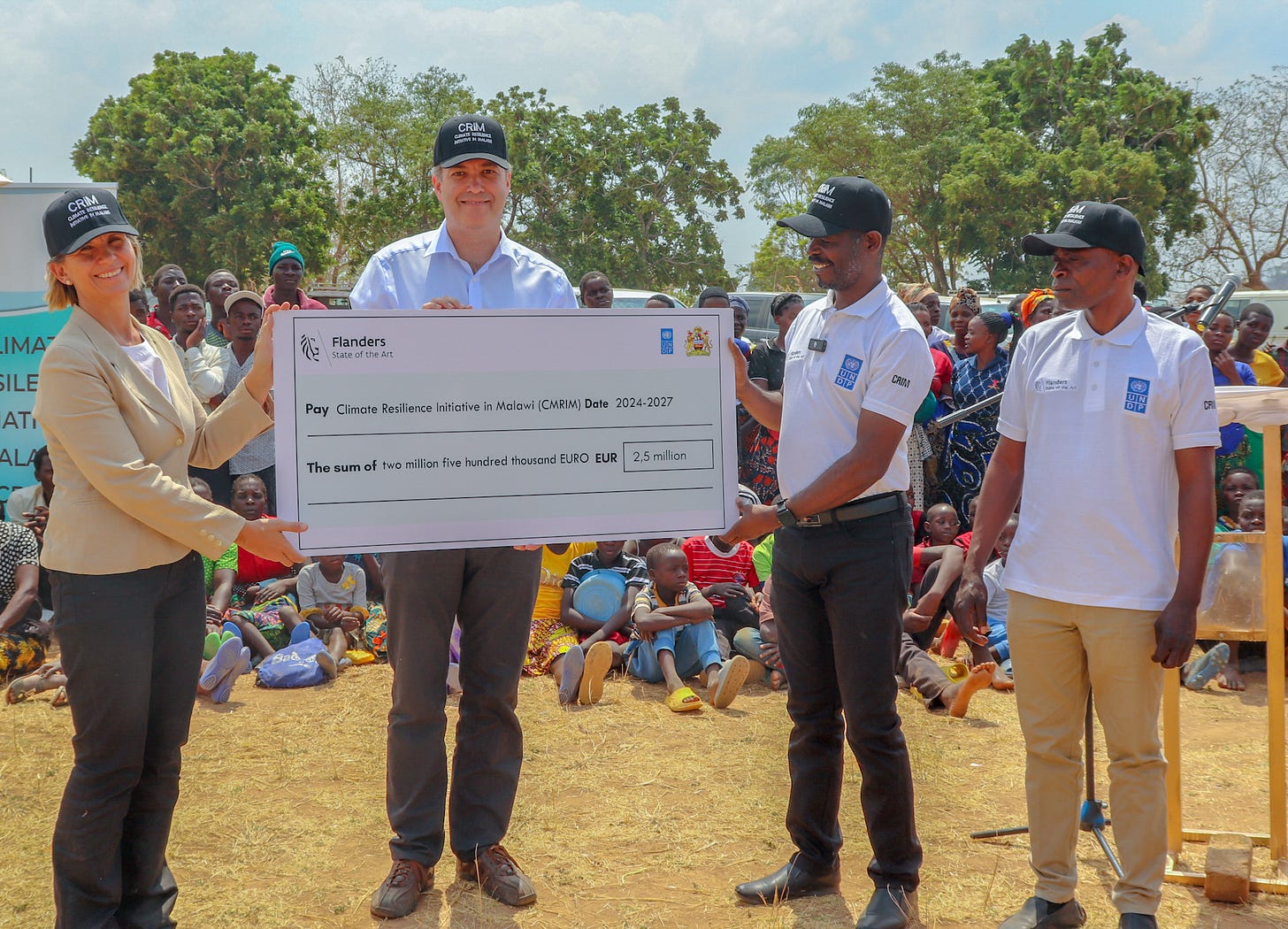CLIMATE ACTION: UNDP and Malawi Government collaborates in yet another climate resilience initiative.
Strengthening vulnerable communities' adaptive capacity and resilience to climate related change shocks.
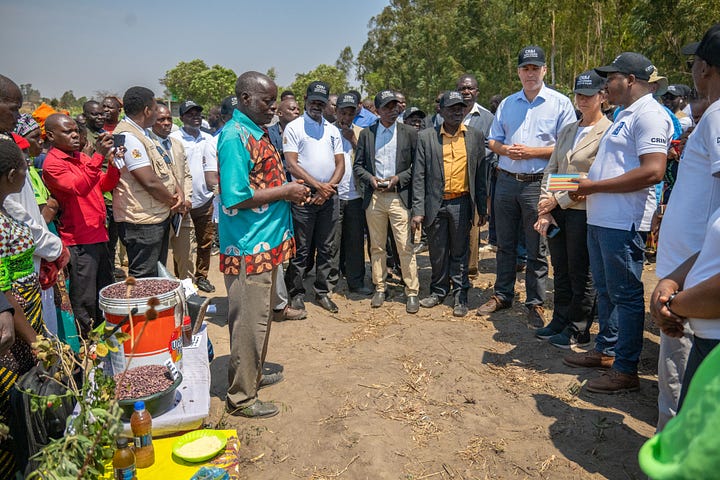
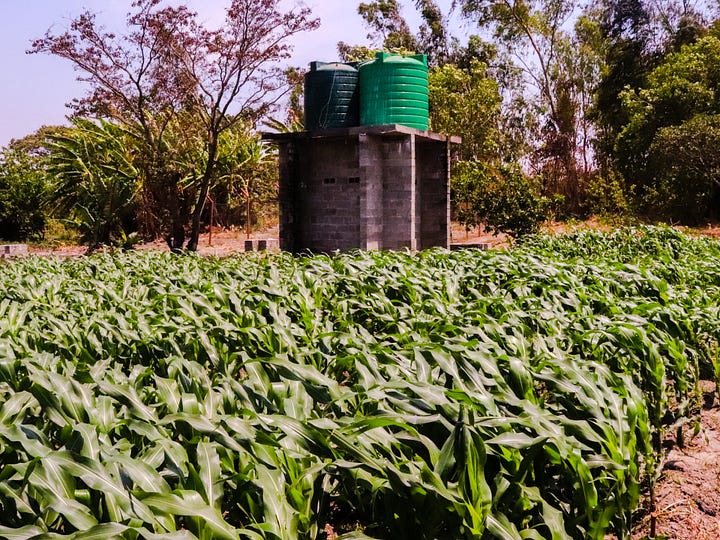
Kasungu, (Malawi) - Malawi through Environmental Affairs Department in the Ministry of Natural Resources and Climate Change in collaboration with the UNDP Malawi is implementing a second phase of the Climate Resilience Initiative in Malawi (CRIM-II) Project to strengthen vulnerable communities' adaptive capacity and resilience to climate change with financial support from Flanders Government.
Malawi, like many countries in Africa and beyond, is facing increasingly severe impacts of climate change like rising temperatures, unpredictable rainfall, droughts, flash floods, and other extreme weather events which impacts strongly on vulnerable populations including the rural and urban poor, persons with disabilities and other marginalized populations in a society.
The implementation of the second phase of the climate resilience initiative which will run from 2024 to 2027 is therefore good news to people Kasungu and Mzimba districts where the project is expected to build on the successes of the first phase which commenced in 2019. Among other milestones, the project is expected to bridge gaps in market opportunities for climate entrepreneurs; accelerate climate resilience and adaptive capacity; expand production activities that offer alternative livelihoods; improve watershed management, ecosystem-based approaches and climate adaptation planning.
CRIM-II will build on previous development gains by identifying scalable entrepreneurship opportunities and attracting new investments in sectors prioritized by local communities.
Speaking about outcomes of the first phase, Fenella Frost, UNDP Malawi Resident Representative said the initiative achieved significant outcomes including enhanced capacities to effectively respond to climate related shocks, improved ecosystem management and watershed protection and increased resilience among communities.
Frost told the local community, government officials and development partners who came to witness the launch of the second phase at Kachinda in the Area of Senior Chief Kaluluma in Kasungu on October 9 that the CRIM-I brought transformative results across multiple areas in a sense that targeted communities experienced 25 to 30 percent increase in household income driven by diversified livelihoods such as micro-agro enterprises and village savings associations.
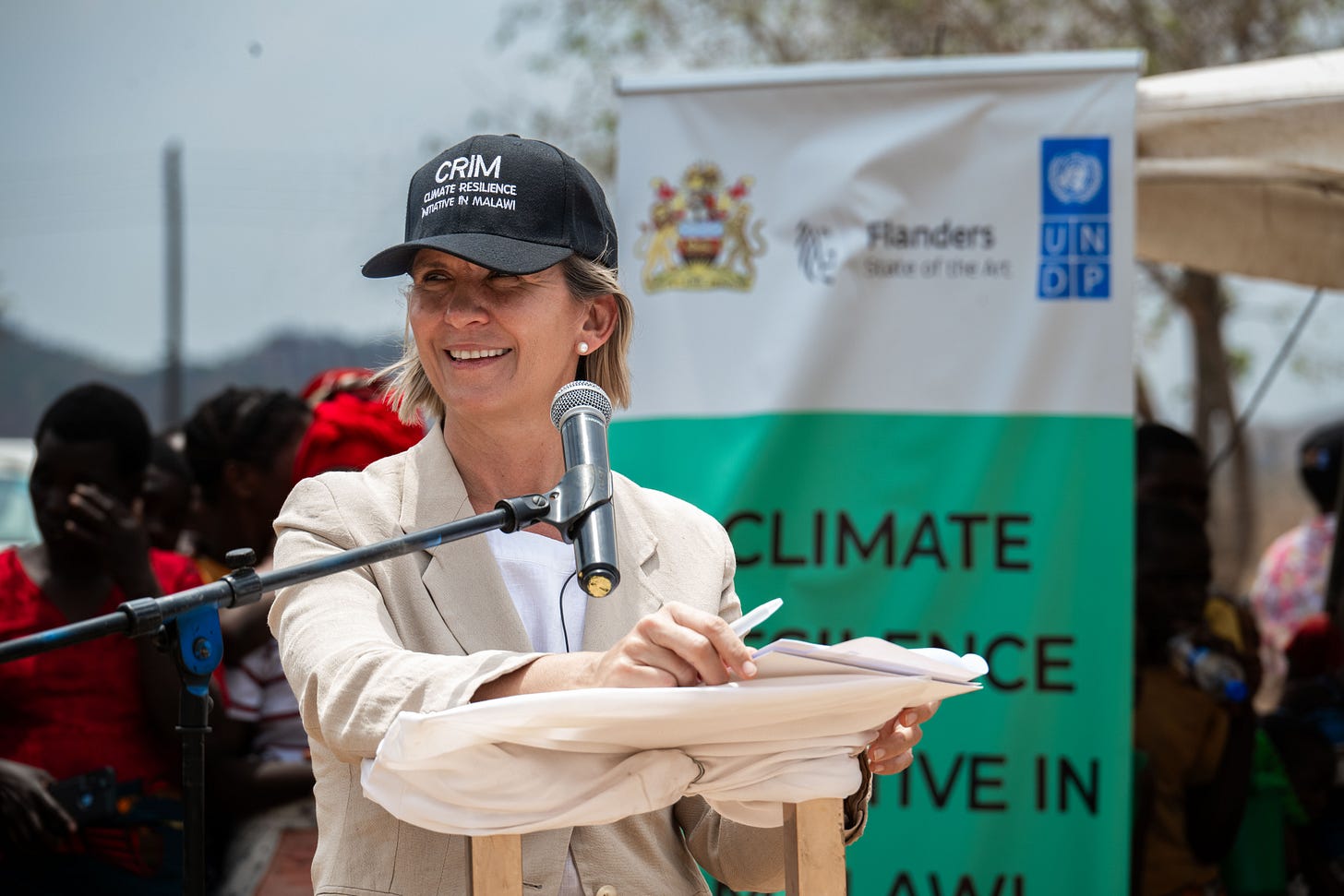
She further explained that agricultural yields for crops like maize, irish potatoes, tomatoes and soya beans increased by 40 percent while sales from solar powered irrigation schemes saw a 45 percent boost.
Environmentally, 650 hectares of land came under improved forestry management, enhancing ecosystem services and ensuring perennial flow of key rivers. Honey production expanded significantly growing from 5 to 75 active groups contributing to nature-based entrepreneurship. Savings and investments flourished with K50,000,000 ($50,000) saved for 500 beneficiaries through village savings and loans.
Additionally, six solar powered irrigation systems were installed on 60 hectares of land for domestic use and aquaculture. Overall, CRIM-I proved to be a scalable and sustainable model for community resilience, with valuable lessons learnt on the importance of market-driven approaches and public sector involvement in climate adaptation solutions, She outlined.
“In the second phase of CRIM project, our focus will be sustaining the development gains made by communities, while identifying and scaling up viable entrepreneurship opportunities that promote climate resilience. We aim to attract new investments that align with local priorities ensuring that these efforts contribute to long term growth,” She said.
She added: “We will work to strengthen private sector engagement, leveraging its potential to support climate resilience, drive inclusive and sustainable development across the region.”
Similarly, Flanders Government Deputy General Representative, Laurijn van Steenbergen said the achievements from the first phase had laid a strong foundations for further progress in the second phase adding that CRIM-II will go beyond empowering communities and district councils since it also places the private sector at the forefront of its efforts.
“This evolution is crucial as the private sector has the potential to drive scalable, innovative solutions for climate resilience that can reach across Malawi,” he explained.
Van Steenbergen commended good collaboration existing among various stakeholders who are implementing the project, saying: “The partnership that we have built has shown us that it is possible that when we collaborate in purpose and action, we are able to build a more resilient, sustainable Malawi where communities are empowered to succeed in the face of climate change.
The Flanders Government head of delegation in Malawi then made a symbolic cheque presentation of $2.5 million for the CRIM project.
Dr. Yusuf Mkungula, Secretary for Natural Resources and Climate Change commended Flanders Government for realising the potential and Malawi’s commitment to upscale interventions for addressing the impacts of climate change on vulnerable communities through CRIM project.
The Principal Secretary who at the function represented the minister responsible for Natural Resources and Climate Change said CRIM project is very crucial and relevant as it contributes to the ministry’s strategies towards achievement of Malawi 2063 vision targets and the Sustainable Development Goals.
“It is my sincere expectation that implementation of interventions under this phase will be in such a manner that is focused on continuation of building resilience through community based approaches by leveraging capacities built in phase one,” Dr. Mkungula emphasized.
He encouraged the beneficiaries to own the project for sustainability of the gains achieved.
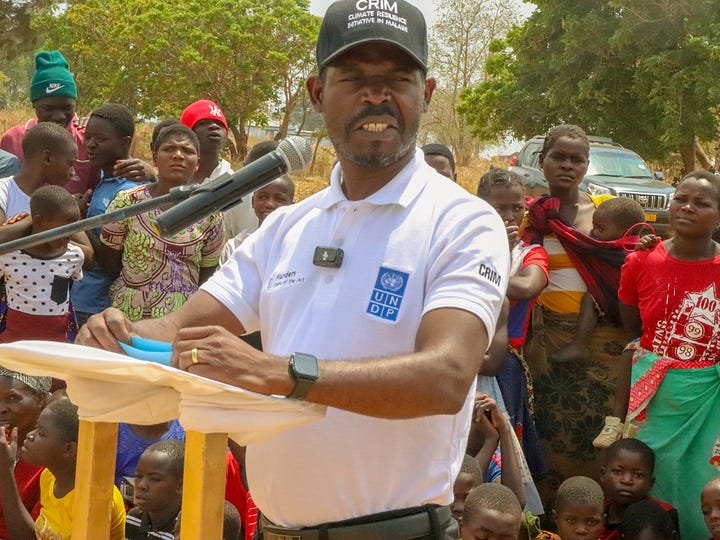
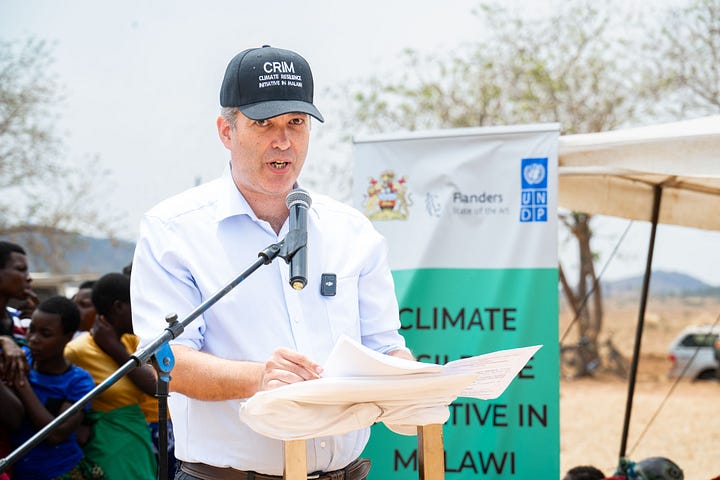
On their part, visibly joyous community leaders led by Senior Chief Kaluluma thanked government and development partners for re-introducing CRIM project in their area, promising to work hard in the field to improve their livelihood.
The senior chief said CRIM project had really transformed lives of many households in the area where it is being implemented which prompted him to ask for a possibility of expanding the project area so that other areas within his chieftainship could benefit too.




